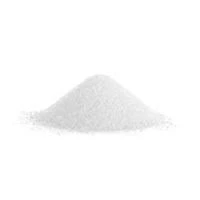
soy emulsifier
Understanding Soy % Emulsifiers The Key to Seamless Food Production
Emulsifiers play a crucial role in the food industry, ensuring that products maintain their desired texture, appearance, and stability. One of the most widely used emulsifiers is soy-based emulsifiers, derived from soybeans. This article delves into the significance of soy emulsifiers, their applications, benefits, and some considerations for their use in food production.
What are Emulsifiers?
Emulsifiers are substances that help mix two immiscible liquids, such as oil and water. They work by reducing surface tension at the interface of the liquids, allowing them to blend into a stable solution. This property is vital in various food items, ranging from salad dressings and mayonnaise to ice creams and baked goods.
The Role of Soy Emulsifiers
Soy emulsifiers, primarily composed of phospholipids like lecithin, have garnered immense popularity. Lecithin, extracted from soybeans, is a natural emulsifier that enhances food quality. It is recognized for its ability to create a stable mixture, improving the texture and extending shelf life. Additionally, soy emulsifiers can contribute to a smoother mouthfeel and prevent separation in products.
Applications of Soy Emulsifiers in Food Industry
1. Baked Goods In bread and pastries, soy emulsifiers improve dough stability and texture. They help retain moisture, resulting in softer and fresher products. Moreover, they enhance the volume and crumb structure of the finished goods.
2. Dressings and Sauces Soy emulsifiers play a vital role in creating stable sauces and dressings. They prevent oil separation and promote a uniform consistency, which is essential for product appeal and consumer satisfaction.
3. Ice Cream and Dairy Products In frozen desserts, soy-based emulsifiers contribute to a creamy texture and prevent ice crystal formation. This results in a smoother, more enjoyable eating experience. They also help stabilize dairy emulsion, which is crucial for products like cream cheese and yogurt.
soy emulsifier

5. Meat Products In processed meat, soy emulsifiers aid in moisture retention and texture improvement, providing a juicy and appealing product.
Benefits of Soy Emulsifiers
1. Health Benefits Soy emulsifiers are derived from a plant source, making them a preferable choice for health-conscious consumers. They are also non-GMO and cholesterol-free, catering to the needs of specific dietary preferences.
2. Functional Properties The functionality of soy emulsifiers goes beyond mere emulsification. They can enhance foaming, whipping, and textural properties, making them versatile in product formulation.
3. Cost-Effective Incorporating soy emulsifiers can be cost-effective for manufacturers as they improve product quality while optimizing ingredient usage.
4. Sustainability Given the rising demand for sustainable food sources, soy-based emulsifiers align with this trend. As a renewable resource, soybeans can contribute to more sustainable food production practices.
Considerations for Use
While soy emulsifiers are beneficial, it's essential for manufacturers to consider potential allergens. Soy is a common allergen, and proper labeling is crucial to inform consumers. Additionally, understanding the specific functionality required for each product is vital to ensure the correct type and amount of emulsifier is used.
Conclusion
Soy emulsifiers represent a significant advancement in food technology. Their ability to improve texture, stability, and overall product quality makes them indispensable in the modern food industry. As consumer preferences lean towards healthier and more sustainable options, soy emulsifiers will continue to play a key role in innovative food production practices. By understanding and implementing these emulsifiers, manufacturers can create appealing and stable food products that meet the evolving demands of today’s consumers.
-
Pure Sodium Dichloroisocyanurate Dihydrate | Powerful DisinfectantNewsAug.29,2025
-
Industrial Chemicals: Quality & Purity for Every IndustryNewsAug.28,2025
-
Nitrile Rubber Honoring Strict Production StandardsNewsAug.22,2025
-
Aspartame Ingredients Honoring Food Safety ValuesNewsAug.22,2025
-
Fertilizer for Balanced Plant NutritionNewsAug.22,2025
-
Cyanide Gold Processing with High Purity AdditivesNewsAug.22,2025
-
Formic Acid in Textile Dyeing ApplicationsNewsAug.22,2025
Hebei Tenger Chemical Technology Co., Ltd. focuses on the chemical industry and is committed to the export service of chemical raw materials.
-

view more DiethanolisopropanolamineIn the ever-growing field of chemical solutions, diethanolisopropanolamine (DEIPA) stands out as a versatile and important compound. Due to its unique chemical structure and properties, DEIPA is of interest to various industries including construction, personal care, and agriculture. -

view more TriisopropanolamineTriisopropanolamine (TIPA) alkanol amine substance, is a kind of alcohol amine compound with amino and alcohol hydroxyl, and because of its molecules contains both amino and hydroxyl. -

view more Tetramethyl Thiuram DisulfideTetramethyl thiuram disulfide, also known as TMTD, is a white to light-yellow powder with a distinct sulfur-like odor. It is soluble in organic solvents such as benzene, acetone, and ethyl acetate, making it highly versatile for use in different formulations. TMTD is known for its excellent vulcanization acceleration properties, which makes it a key ingredient in the production of rubber products. Additionally, it acts as an effective fungicide and bactericide, making it valuable in agricultural applications. Its high purity and stability ensure consistent performance, making it a preferred choice for manufacturers across various industries.





